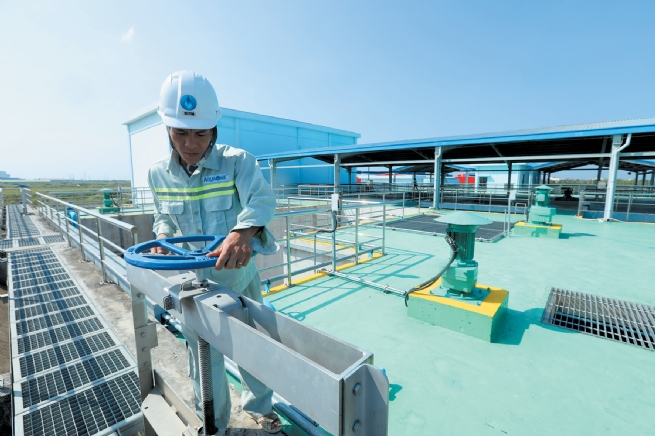Unlocking the green capital flows
To help shift green capital flows and support the sustainable development, in HSBC’s view, Vietnam needs to increase transparency, tighten the regulations related to ESG and limit the information asymmetry between investors and corporates.

>> Vietnam Needs Strategic Approach to Green Capital Flow
Finance took the center stage at the 28th Conference of the Parties of the UNFCCC (COP28) as host of the climate summit, the United Arab Emirates (UAE), announced that the amount of climate finance mobilised during the first five days of the event reached more than $83 billion. It came from the pledges of various countries, development institutions and businesses who have commited to funding numerous projects, from the energy transition to health care initiatives, technology investments, disaster relief, etc. It's encouragingly high but seems like a drop in the bucket against the global vast investment of $3 trillion needed each year to limit global warming to 2 degrees Celsius according to the estimation of the Inter-governmental Panel on Climate Change (IPCC).
The number further highlighted finance as the key enabler in mankind's fight against climate change. Banks therefore play a central role in mobilising and channeling the green funding required to achieve global net zero target.
In fact, the finance sector has set ambitious net zero targets and committed trillions of dollars toward the transition. HSBC Group, who has been leading the global sustainability agenda for a long time, declared its intention to make its entire customer portfolio carbon neutral by 2050 by committing USD750 billion up to USD1 trillion in financing to support this goal. Specifically, in Vietnam, HSBC commits to arrange direct and indirect sustainable financing for Vietnam and the corporate sector in Vietnam, supporting the country to realise its net zero commitment made at the COP26.
Lam Thuy Nga, Country Head of Large Corporate, Wholesale Banking, HSBC Vietnam, said there should be numerous roadblocks along the way. One of the main challenges for sustainable development and financing is the lack of a detailed taxonomy, especially to define ‘sustainable’ and ‘green’. Even though Vietnamese government is working on its legal framework, the banking sector still mainly relies on each bank’s internal system with constant monitoring. The lack of clear regulation also leads to hesitation to proceed large sustainability projects that require a complex financing process.
Another key challenge is data and disclosure. Investors, consumers, and employees see ESG report as a window into importan indicators of company's overall health and its impacts to the world. That said, most of companies have none or very limit ed of ESG reporting, they lack understanding or just start to understand the ESG data requirements for reporting. Moving forward, I think that the regulators have a very significant role in guiding businesses as well as requirements to push them pay more attention on collecting and analysing data for better reports.
>> Green capital for the circular economy
Over 90% of Vietnamese companies are small and medium enterprises, however, only listed companies are required to provide ESG performance and strategy in their annual report. Even so, most of the provided information is basic without third party verification, except for a modest number of companies with international certificates. Investors might not be able to rely on this to rate the ESG level of the company, therefore, delay the decision to invest.
“The current general sustainability standards for Vietnamese corporates also create challenges for financing. Since the country’s official standards are not available yet or set for future implementation, financial institutions like HSBC have to follow international standards with adaptation to fit with the market. Still, these standards might be too advanced for most firms, which prevent them from accessing sustainable financing”, added Lam Thuy Nga.
All in all, in Lam Thuy Nga, opinion, to help shift green capital flows and support the sustainable development in Vietnam, the government needs to increase transparency, tighten the regulations related to ESG and limit the information asymmetry between investors and corporates. In recent years, a small group of companies has applied voluntary ESG disclosure to attract foreign investors as well as to satisfy the strict conditions of certain export markets such as Europe, however, in order to receive large scale positive results, robust ESG disclosures needs to be regulated by law.








